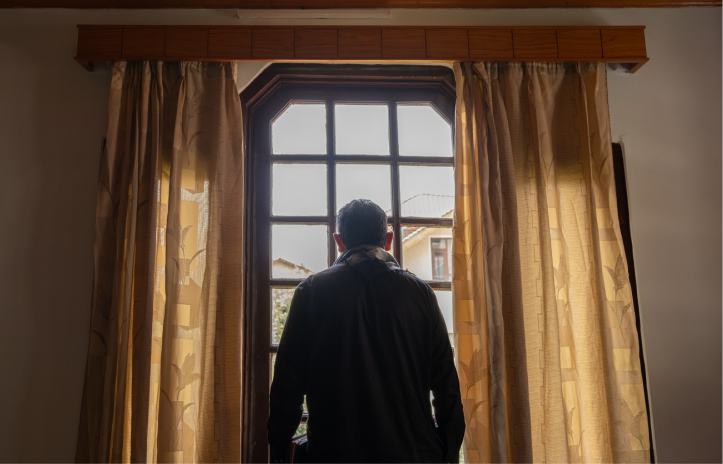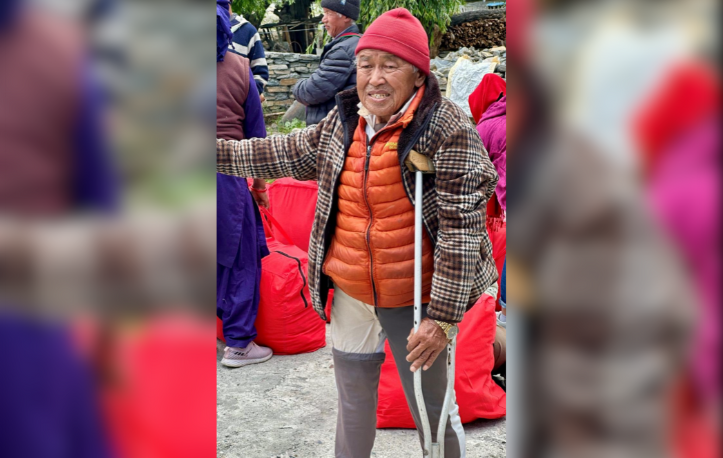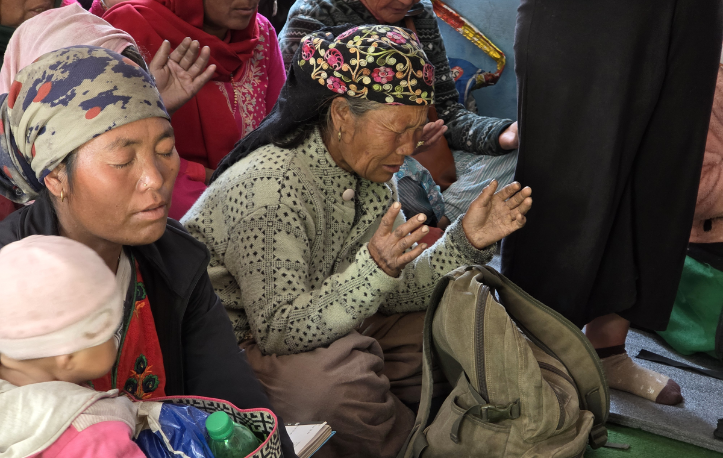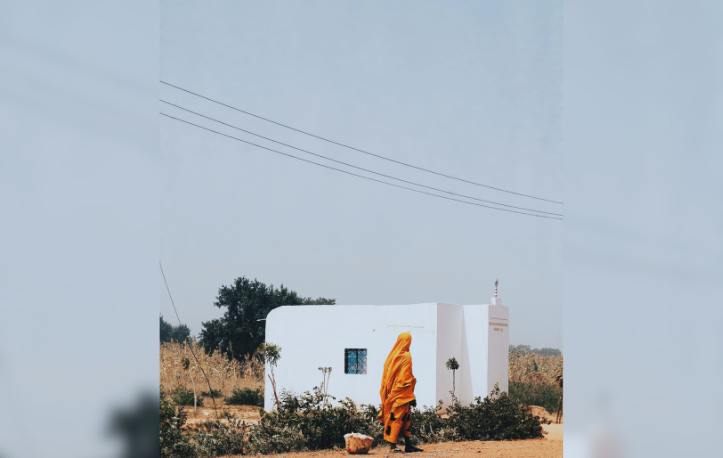A few decades ago, a young Kashmiri man was ready to take up arms in the struggle for Kashmir’s freedom. But today, he is willing to lay down his life so that everyone in the region might find true freedom in Christ.
In early 1990, as militant groups emerged to challenge India’s claims of sovereignty in the Kashmir Valley, 27-year-old Ahmed had to choose a side. Although he viewed the militants as freedom fighters, he knew that others considered them terrorists.
His allegiance was initially influenced by his family’s ties to neighbouring Pakistan, which has fought India for control of predominantly Muslim Kashmir since 1947. When India’s soldiers responded to Kashmiri protests by shooting dozens of people, his convictions solidified. “I wanted to fight back,” Ahmed said.
He wasn’t alone in those sentiments. Many of his friends sought training at a separatist camp in a part of Kashmir controlled by Pakistan. “When they came back,” he said, “they visited me at my place, and they were carrying AK-47 rifles. That was the first time I had seen those guns up close.”
Various militant groups encouraged families to offer their sons as freedom fighters for Kashmir. The young men were told that if they died in the conflict, they would end up in paradise.
“The situation was very volatile everywhere,” Ahmed said. “Even during the calls for prayer, the imams would call out, ‘Freedom! Freedom! We want freedom for our people!’ That was the kind of fervour that had crept into everybody, and they began to hate the Indians.”
Caught in the Conflict
One day, militants and soldiers clashed in the streets. Ahmed remained at home with his wife and two young boys, but when he went to assess the damage the next day, he was deeply shaken by what he saw.
“The streets were filled with dead bodies,” he said. “You could not count them. It was difficult to tell who died — army soldiers, militants or your siblings.” As he walked among the dead, Ahmed saw the body of a close friend. “He had just come to my house with a gun,” he recalled. “It was heartbreaking because we were very close to each other. My friend had just started a job as a teacher. He was quite intelligent, and this was his end.”
The death and destruction changed Ahmed’s view of the insurgency. Suddenly, he detested the idea of fighting. “I had just become a young man,” he said. “I had so much to see in this world, but all I saw was the militancy.”
Although he wanted no part in the conflict, it continued to pursue him. As he walked out of his house about two months after his friend’s death, Indian soldiers detained him for suspected involvement in the uprising.
“I had just woken up and the military got me,” Ahmed said. “They bound me to an electric pole.” The soldiers had blockaded the entrance to the village and arrested 25 men, including Ahmed. They beat and interrogated the men before taking them to a temporary labour camp that evening. Because Ahmed spoke the same language as the soldiers, he was able to persuade them to release him after three days.
When he returned home, his mother urged him to flee to nearby Jammu, a predominantly Hindu area where he would be safer. He agreed and moved his family there in 1991.
Finding the Light
The trauma Ahmed had experienced in Kashmir and subsequent stress of moving his family led him to start smoking and drinking heavily, which in turn caused a medical condition that required hospitalisation.
Ahmed’s sister, who lived in Jammu and had recently become a Christian, asked her pastor to pray for her brother. The pastor not only prayed for him but visited Ahmed in the hospital. He told Ahmed about Jesus Christ and read him several Bible verses, including 2 Chronicles 7:14, which says, “If My people who are called by My name will humble themselves, and pray and seek My face and turn from their wicked ways, then I will hear from heaven and will forgive their sin and heal their land.”
“When I heard these comforting words,” Ahmed said, “I was greatly influenced and began believing in Jesus. Within a week’s time, I was healed from my illness. This miracle gave me much confidence to rely on Jesus, and I started praying without ceasing.”
When Ahmed’s family and friends learned he had left Islam to follow Christ, however, they rejected him. “Though I was treated harshly,” he said, “I did not give up my faith but wished to win my people for Christ.”
Ahmed started studying the Bible and joined a small house church with only four believers. After his baptism on 10 May 1992, he felt called to share the love of Christ with his Hindu neighbours.
In October, Ahmed heard a visiting pastor read Isaiah 6:8, in which the Lord asks Isaiah, “Whom shall I send, and who will go for Us?” Ahmed and three other men raised their hands, offering the same response as Isaiah: “Here am I! Send me.” “I wanted to preach the gospel,” Ahmed said. “The pastor said I was living in a Hindu country where there is total darkness and in a city in total darkness, so I should take the light.”
Encountering Resistance
Ahmed and the other evangelists pledged to share the gospel throughout Jammu for the next seven years, reaching 50 households each day. “I was excited to go,” Ahmed said, “but at the same time there was a problem: I had not [sufficiently] studied the Bible.”
His pastor agreed to help him study the Bible for a couple of hours each morning, focusing on the gospel and evangelism, and then Ahmed would go out into the community and share what he was learning.
The Hindu nationalist organisation Rashtriya Swayamsevak Sangh (RSS) controlled the area where he and his friends were working, and they knew the group persecuted Christians in its push to transform India into a purely Hindu state.
“We were not afraid at all, because we had seen and studied that Jesus was beaten up,” Ahmed said. “If he was beaten up, it is OK to take a beating. We didn’t give much thought to persecution. There was no fear.”
Most Hindus were respectful and listened to their message, and Ahmed said many came to faith in Christ. Only occasionally did the conversations spark a debate about religion. Eventually, though, their influence in the community became known to more militant Hindus. One day, while the men were telling villagers about Christ, several members of the RSS surrounded them and started beating them.
“I was bleeding from my mouth,” Ahmed recalled. “My shirt was torn, and there was blood on me. I took the beating, and they told me never to come back there again.”
But Ahmed and the others ignored the threats. Despite further confrontations with RSS members, they continued to proclaim the gospel until they fulfilled their seven-year commitment, in late 1999. “In that region, we saw so many churches being planted,” Ahmed said. “Many people in the city have come to the Lord, and there are seven churches that are thriving that were planted by me and my team.”
Ahmed soon had a dream in which he saw a valley filled with blood. “I woke up in the morning, and I understood what the dream was talking about,” he said. “I told my wife, ‘I’m going to Kashmir’.”
A Dedicated Disciple
After returning to Kashmir to work with other local evangelists, Ahmed met a Muslim man named Mohammed ‘Yousuf’ Bhat. The two talked briefly, and Ahmed gave him a New Testament. The book changed Yousuf’s life. “He joined us for prayers every week and started sharing with other brothers,” Ahmed recalled. “He started training with one evangelical organisation and received a call to serve Jesus.”
Yousuf soon became known as a fearless and passionate believer who could not keep quiet about Christ. Despite the risk of opposition he faced from Islamic extremists, he boldly discipled Christian converts from Islam and distributed Bibles and copies of The Jesus Film throughout Kashmir. Many in the region, including Muslims, saw Yousuf as the leader of the church in Kashmir.
Not surprisingly, Yousuf began to receive death threats, and Ahmed soon faced opposition of his own. “My own people — friends, relatives, neighbours — began to forsake me,” Ahmed said. “The mullah issued a fatwa against me because I was talking about Christianity. I felt very lonely and lost. I went through a lot of gruelling times here, but God was with me. I was forsaken by friends, but not by God.”
Not even a fatwa, a public condemnation from an Islamic leader, could keep Ahmed from sharing the message of God’s love. In fact, he redoubled his efforts. “I was not afraid,” Ahmed said. “I didn’t
care.”
During the Muslim holy month of Ramadan, he distributed copies of the gospel on audio cassettes to Muslims. Some Muslim men, angered by his boldness, physically attacked him. “They severely beat me and ripped my shirt in two for distributing Bibles and other Christianity-related cassettes,” he said.
After the attack, Ahmed changed his methods slightly, leaving cassettes and printed Bibles on buses and in other public places. “I received many death threats from Islamic militants,” he said, “but the deceiver’s attempts to dissuade me could not disrupt my attention from serving the true God.”
Terror at His Doorstep
During the next decade, Ahmed endured repeated threats and beatings for his ministry work. The most alarming threat he received was a sealed letter from the Kashmiri Islamist group Hizbul Mujahideen. The group seeks independence from India and union with Pakistan, a goal Ahmed once shared. “When I saw that a letter had come in the letter box,” Ahmed said, “I was so terrified to read it.”
The letter’s warning was unequivocal: “Stop preaching to the people of Kashmir. Otherwise, we will come to your doorstep to shoot you.” The fact that the group had his current address, after he had moved dozens of times to protect his family, terrified Ahmed. “I decided to run away to another city,” he said. “That same evening, I sat on my knees and … I clearly heard a voice say, ‘Ahmed, why are you afraid?’”
Again, Ahmed made adjustments to his work to keep himself and his family safe, but he remained dedicated to proclaiming the gospel despite the increasing likelihood that he might be killed. Then, one night, Ahmed received a devastating phone call from Yousuf’s wife. On the evening of 1 July 2015, four masked gunmen had come to Yousuf’s home and escorted him outside, where they shot him seven times, killing him. It is still unclear which group is responsible for Yousuf’s murder. “We lost a good soldier in Christ,” Ahmed said. “He was a rock. I miss his boldness.”
Continuing the Fight
Today, nearly a decade after Yousuf’s death, Ahmed continues to see the effects of his faithfulness and influence everywhere he goes. “When I go to preach, I see so many believers and seekers who were mentored through him,” he said. “Somehow, it makes me feel happy and also sad. I salute my friend Mohammed Yousuf Bhat. One day, I’ll see him face-to-face again. There is a reward in heaven for this soldier.”
Between the years 2000 and 2019, Ahmed was compelled to move his family 185 times, averaging almost 10 times a year during that period. He continues to take reasonable measures to protect himself and his family, without giving in to fear. He knows God is with him.
“My work is not yet accomplished,” he said. “God has a greater plan and purpose in my life. Nobody can wipe me out from this earth until his plans are accomplished through me.” Ahmed’s goal is to plant house churches in each of Kashmir’s 10 districts and to train leaders throughout the region. Today there are churches in four districts. “We can do it,” he said. “If God is for us, we can advance. In God, we can do anything.”
Ahmed and his family have received no threats for several years, but he knows that could change anytime. “Persecution is part of ministry,” he said. “In the Bible, when persecution comes, the ministry grows.”
With that in mind, Ahmed expects his ministry to continue growing no matter the cost. “If there is persecution, I can face it,” he said. “I wish to see great transformation among the Kashmiri people. If I am killed, I will have fought a good fight. I will have run a good race.”




May we all be willing to be an Ahmed to our Kashmirs.
Please pray for me and my wife to be faithful to our LORD AND SAVIOUR JESUS CHRIST just like my brothers and sisters who live for JESUS at the cost of their lives. Pray for my sons Rhys and Rosh to turn to The LORD in complete surrender .
Dear ABBA FATHER, JESUS CHRIST YOUR ONLY BEGOTTON SON WHO DIED FOR Oral, his wife, their dear sons Rhys and Rosh, we hold them up in prayer for total surrender as Ahmad did so many years ago. Help Oral to pray, and believe in the MIGHTY POWER OF YOU DEAR PRECIOUS HOLY SPIRIT. I PRAY for Ahmad continued protection and witness to his Muslim and Indian neighbors. LORE BRING my son Aaron back to you, and close the gap of separation by YOUR PRECIOUS BLOOD JESUS. We ask for your wisdom, discernment and love I’m these days, as they are as the days of Noah. Give all of us courage like our bros and sis in the Persecuted lands. May we live each day for YOU.